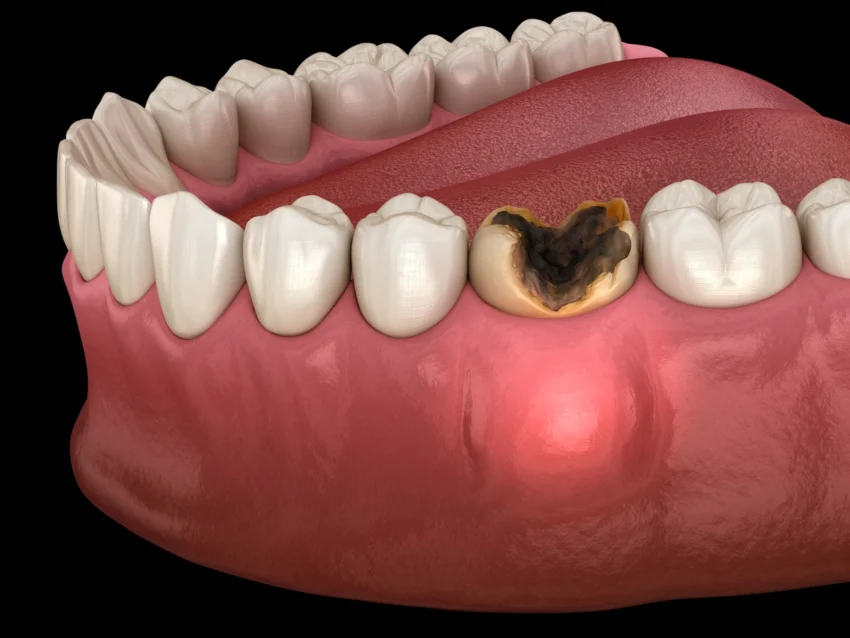Are you experiencing discomfort in your mouth? Are your gums feeling sore? It might be more than just a passing inconvenience. Understanding the symptoms of an infected tooth and exploring sore gums treatment options is crucial for maintaining your oral health. Let’s delve deeper into these issues.
Symptoms Of An Infected Tooth:
- Persistent Toothache: An infected tooth often manifests as a persistent, throbbing toothache. This pain can vary in intensity, from mild discomfort to severe agony, and may worsen with pressure or temperature changes.
- Swelling And Tenderness: Noticeable swelling and tenderness in the gums around the infected tooth are common symptoms. You may also experience sensitivity to touch or pressure in the affected area.
- Foul Taste Or Odor: An unpleasant taste or odor in the mouth, particularly near the infected tooth, can indicate the presence of infection. This may be accompanied by the release of pus or a foul discharge from the tooth.
- Fever And Malaise: In some cases, an infected tooth can lead to systemic symptoms such as fever, fatigue, or general malaise. If you’re experiencing these alongside other dental symptoms, it’s essential to seek prompt medical attention.
Sore Gums Treatment:
- Maintain Good Oral Hygiene: Proper oral hygiene is key to preventing and managing sore gums. Brushing twice a day with fluoride toothpaste, flossing daily, and using an antiseptic mouthwash can help remove plaque and bacteria, reducing gum inflammation.
- Warm Saltwater Rinse: Gargling with a warm saltwater solution can provide temporary relief for sore gums. Saltwater helps reduce inflammation and kill bacteria, promoting faster healing. Repeat this several times a day for best results.
- Over-The-Counter Pain Relief: Non-prescription pain relievers such as ibuprofen or acetaminophen can help alleviate discomfort associated with sore gums. Follow the recommended dosage instructions and consult your doctor if you have any underlying medical conditions.
- Topical Treatments: There are various topical treatments available, such as numbing gels or mouthwashes containing benzocaine or lidocaine, which can temporarily numb the affected area and provide relief from sore gums.
- Professional Dental Care: If home remedies don’t provide adequate relief or if you’re experiencing severe symptoms, it’s crucial to seek professional dental care. Your dentist can assess the underlying cause of your sore gums and recommend appropriate treatment, which may include deep cleaning, scaling, or antibiotic therapy for gum disease or tooth infection.
Conclusion:
Understanding the symptoms of an infected tooth and exploring sore gums treatment options is essential for maintaining optimal oral health. By recognizing the signs early and seeking prompt medical attention, you can prevent complications and alleviate discomfort associated with these conditions. Remember to prioritize good oral hygiene practices and consult your dentist regularly for preventive care and timely intervention. Your smile deserves the best care possible!

